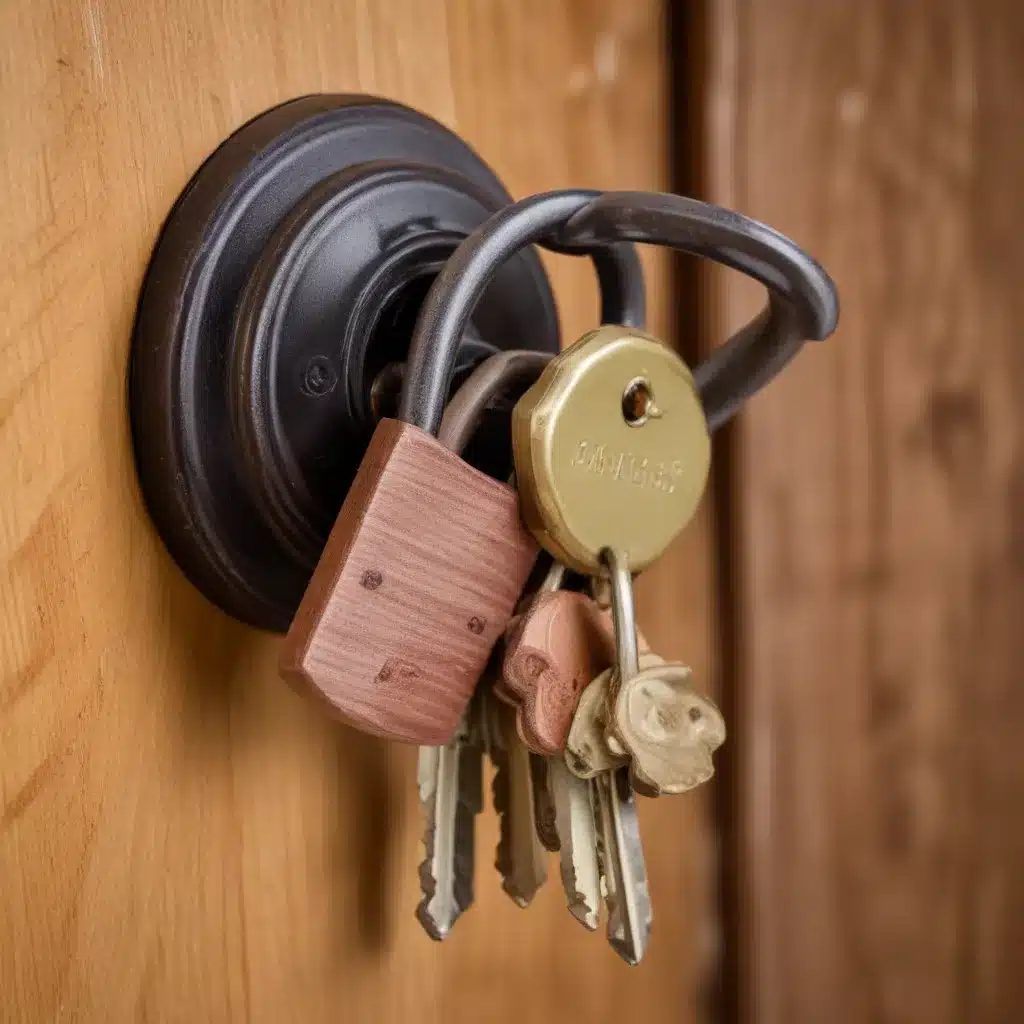
‘Empowering Homeowners: DIY Lock Maintenance Tips’
As an experienced locksmith in the Washington, DC area, I’ve seen firsthand the importance of proper lock maintenance and security upgrades for homeowners. Whether you’re dealing with a stuck deadbolt, a broken key, or looking to enhance your home’s defenses, understanding the ins and outs of lock systems can empower you to take control of your property’s safety.
Home Security
The foundation of any secure home begins with the locks on your doors and windows. While modern lock technology has advanced significantly, the basics of proper installation and care remain critical. Let’s explore the different lock types and how to ensure they’re functioning at their best.
Types of Locks
When it comes to residential security, three primary lock categories stand out:
Deadbolts: These sturdy, cylinder-based locks provide an extra layer of protection beyond a standard doorknob lock. Deadbolts can be single-cylinder (operated by a key from the outside) or double-cylinder (requiring a key on both sides), and offer enhanced resistance to forced entry.
Knob Locks: Commonly found on interior and exterior doors, knob locks offer a convenient, basic locking mechanism. While not as robust as deadbolts, they can still deter opportunistic burglars when properly installed and maintained.
Padlocks: Though primarily used for securing outbuildings, sheds, and other external access points, padlocks can also play a role in home security, such as securing gates or storage areas.
Lock Installation
Proper lock installation is crucial for ensuring your home’s safety. When choosing a lock, consider factors like the door material, traffic level, and your overall security needs. Consult a professional locksmith if you’re unsure which lock best suits your home.
The installation process varies depending on the lock type, but generally involves accurately measuring the door, preparing the necessary hardware, and ensuring a secure, flush fit. Improper installation can compromise the lock’s effectiveness, so it’s essential to follow the manufacturer’s instructions carefully or seek the expertise of a skilled locksmith.
DIY Lock Maintenance
Regular maintenance is key to keeping your home’s locks in top condition. By taking a proactive approach, you can extend the lifespan of your locking systems and avoid costly repairs down the line.
Cleaning and Lubrication
Over time, locks can accumulate dirt, debris, and even dried lubricant, which can impede their smooth operation. Start by gently cleaning the lock components with a soft cloth or brush, taking care not to force any moving parts.
Once the lock is clean, apply a small amount of powdered graphite or a lock-specific lubricant to the key cylinder and other moving parts. This will help ensure the lock functions smoothly and reduces the risk of sticking or binding.
Adjusting Lock Components
Proper alignment and tightness of lock hardware are essential for optimal performance. Regularly check the screws on the strike plate and doorknob/deadbolt, tightening them as needed to prevent loosening over time.
If the lock seems misaligned, you may need to adjust the strike plate or the lock itself. This can involve shimming the strike plate or slightly repositioning the lock on the door. Be cautious when making adjustments, as improper modifications can compromise the lock’s security.
Lock Troubleshooting
Even with diligent maintenance, locks can occasionally encounter issues. Recognizing and addressing these problems promptly can help prevent larger security breaches.
Identifying Common Issues
Sticky Locks: If a lock feels stiff or difficult to operate, it may be due to dirt, debris, or inadequate lubrication. In some cases, the internal components may be worn and require replacement.
Broken Keys: A broken key trapped inside the lock can be a frustrating experience. This often occurs when the key is worn down or the lock cylinder is not functioning correctly.
Repair Techniques
For minor issues, you may be able to perform basic repairs yourself. Replacing worn parts, such as the lock cylinder or strike plate, can often restore proper functionality. If you’re not comfortable attempting the repair, it’s best to consult a professional locksmith to ensure the job is done safely and securely.
In some cases, rekeying the lock may be the best solution. This involves replacing the internal pin tumblers to accept a new key, allowing you to maintain the same lock hardware while improving security.
Home Security Upgrades
As technology continues to evolve, homeowners have access to an array of advanced security options to enhance their property’s defenses. From smart home integration to specialized lock features, there are numerous ways to fortify your home’s protection.
Smart Home Integration
Keyless entry systems, such as digital keypads or biometric locks, offer convenient access without the need for traditional keys. These can be integrated with your smart home setup, allowing you to monitor and control access remotely via a mobile app or voice assistant.
Remote monitoring capabilities, such as security cameras and motion sensors, can provide an additional layer of vigilance, alerting you to any suspicious activity around your home. By combining these smart home features, you can create a comprehensive security system tailored to your needs.
Advanced Lock Features
Beyond the standard deadbolt or knob lock, specialized lock designs can offer increased protection against common threats. Biometric locks, for instance, use fingerprint or facial recognition to verify the user’s identity before granting access, making them virtually tamper-proof.
Other advanced lock features include reinforced strike plates, anti-drill plates, and tamper-resistant housings – all of which can deter would-be intruders and provide an added sense of security for your home.
As an experienced locksmith serving the Washington, DC area, I understand the importance of empowering homeowners to take control of their property’s safety. By following these DIY lock maintenance tips and exploring the latest security upgrades, you can ensure your home remains a fortress of protection for you and your family.
Remember, if you ever encounter a complex lock issue or require professional installation, don’t hesitate to reach out to a qualified locksmith like those at Local Locksmith Washington DC. They have the expertise to handle any lock-related challenge, from rekeying to advanced security system integration.


